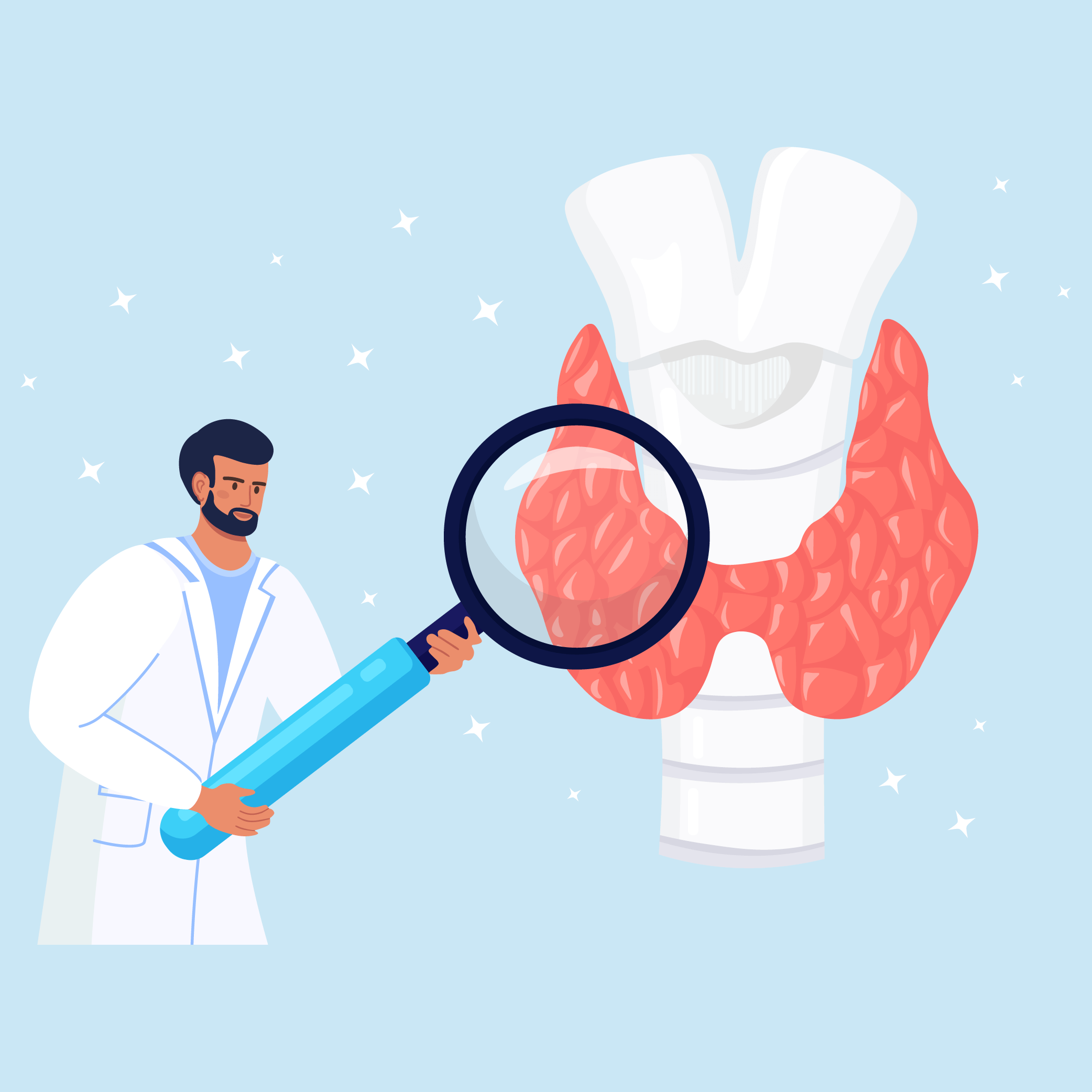
Thyroid cancer is a disease in which malignant (cancer) cells form in the tissues of the thyroid gland.
The thyroid is a butterfly-shaped gland found at the base of the throat near the trachea. This organ produces hormones that help regulate metabolism, heart rate, blood pressure, and body temperature.
Signs & Symptoms
- A lump in the neck
- Swelling in the neck
- Hoarseness
- Trouble swallowing
- Difficulty in breathing
Risk Factors
- Gender and age –Thyroid cancer can occur at any age, but the risk peaks earlier for women (most often in their 40s or 50s ) than for men (usually in their 60s or 70s)
- Radiation – Radiation exposure is a proven risk factor for thyroid cancer
- Obesity – According to the International Agency for Research on Cancer, people who are overweight or obese have a higher risk of developing thyroid cancer
Screening
- Physical exam and health history – an exam of the body to check general signs of health, including checking for signs of lumps or swelling in the neck, voice box, and lymph nodes
- Laryngoscopy – a procedure in which the doctor checks the larynx with a mirror or a laryngoscope to see if the vocal cords are moving normally
- Blood hormone studies – a blood sample is checked to measure the amounts of certain hormones released into the blood
- Ultrasound exam – this procedure can show the size of a thyroid nodule and whether it is a solid or a fluid-filled cyst
- CT-Scan – procedure that makes a series of detailed pictures of areas inside the body, such as the neck, taken from different angles
Prevention
- Maintain a healthy lifestyle – focus on maintaining a balanced diet rich in fruits, vegetables, whole grains, and lean proteins. Regular exercise and weight management can also be beneficial.
- Protect yourself from radiation -exposure to ionizing radiation increases the risk of thyroid cancer. Take precautions to limit your exposure to unnecessary radiation
- Quit smoking – smoking is associated with an increased risk of thyroid cancer
If you have a family history of thyroid cancer or are experiencing any signs and symptoms of thyroid cancer, consult a doctor via Maxicare’s 24/7 Teleconsult Hotline, Videoconsult services powered by the Doctor Anywhere App, or Maxicare Primary Care Clinic (PCC). You may also go to a PCC or request HomeCare for lab tests and diagnostic procedures.
References:







